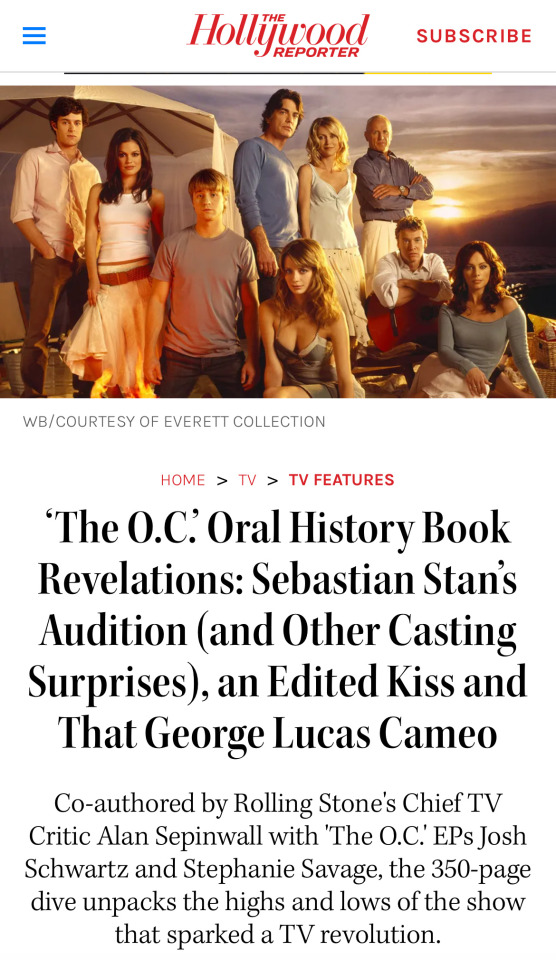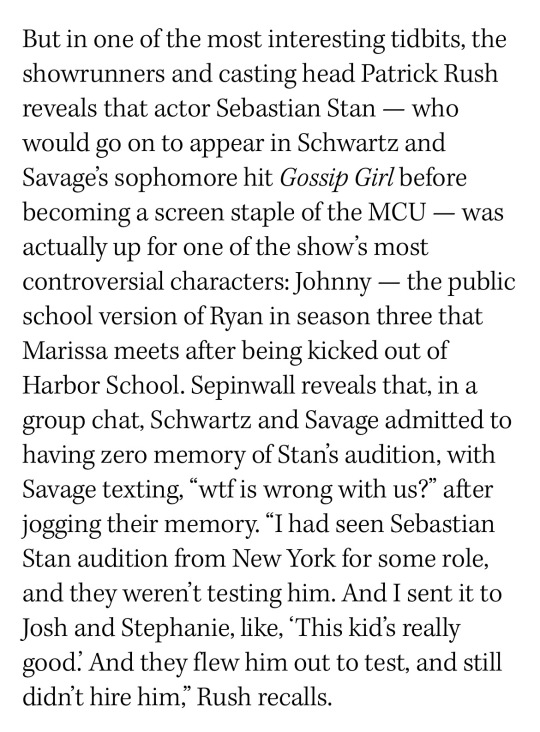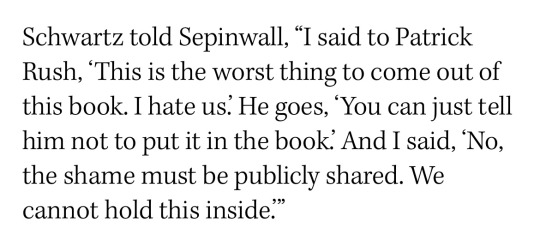#sepinwall book
Note
Do you know where I could find a transcript of the podcast’s episodes, (TOB, I mean! I wanted to read Adam’s because I remember liking the way he talked about Mischa and the way she left the show but I’m not in the mood of watching the whole thing again!😭) Plus you mentioned something about what he said in the book interview, could you share your thoughts on the overall vibe of his answers for the book interview? I’d appreciate it a lot! Thanks!!!
Adam's podcast episodes (1 and 2) on YouTube display the transcript if you click the button 'Show Transcript' under the description and links for stuff. The transcript then appears on the right hand side of the screen. I really do recommend watching them again though if you can (I revisited Part 1 yesterday) but it's definitely a time commitment so I get it.
As for the book, let me get back to you tomorrow or the day after with that info. Adam said a lot of things throughout the book and they're all scattered because the book was organized into seasons rather than by specific interviews. The short answer was his vibe was good and honest about his level of engagement with the show and owns up to a great deal of his bad behavior back then. And he is very sweet about Mischa which has always put him in my good books.
17 notes
·
View notes
Text

I'm looking forward to this more than any grown man should be.
Released this November!
#The OC#The O.C.#Alan Sepinwall#Josh Schwartz#Sandy Cohen#Ben McKenzie#Mischa Barton#TV#Books#Booklr#Seth Cohen
12 notes
·
View notes
Text
March 2024 Reads

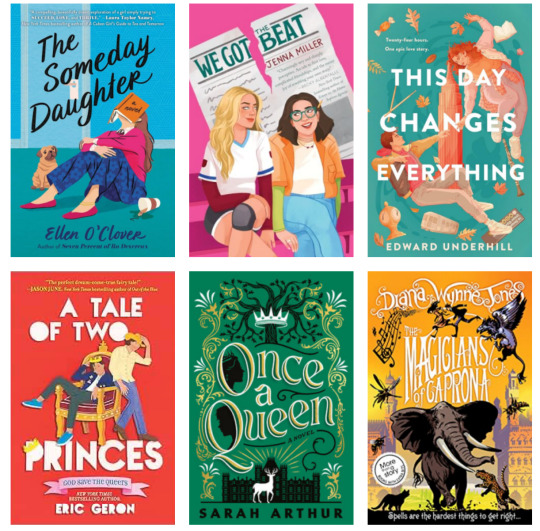

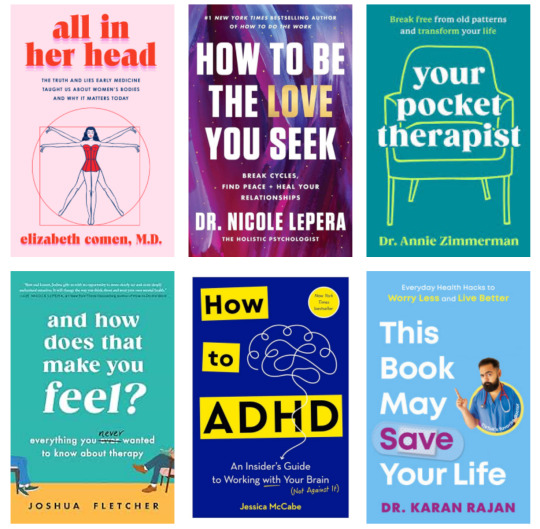
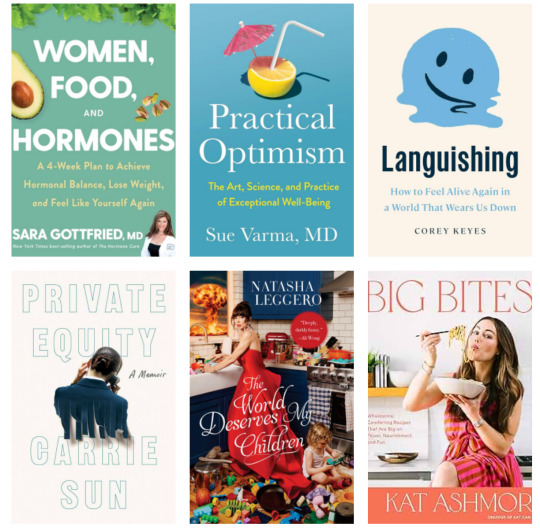
The Mystery Guest - Nita Prose
A Love Song for Ricki Wilde - Tia Williams
This is How You Fall in Love - Anika Hussain
The Getaway List - Emma Lord
Cancelled - Farrah Penn
Friends Don't Fall in Love - Erin Hahn
The Someday Daughter - Ellen O'Clover
We Got the Beat - Jenna Miller
This Day Changes Everything - Edward Underhill
A Tale of Two Princes - Eric Geron
Once a Queen - Sarah Arthur
The Magicians of Caprona - Dianna Wynne Jones
The Wicker King - K. Antrum
The Eyes and the Impossible - Dave Eggers
A First Time for Everything - Dan Santat
60 Songs That Explain the 90s - Rob Harvilla
Welcome to the O.C. - Alan Sepinwall
Mother Hunger - Kelly McDaniel
All in Her Head - Elizabeth Come
How to Be the Love You Seek - Nicole LaPera
Your Pocket Therapist - Annie Zimmerman
And How Does That Make You Feel? - Joshua Fletcher
How to ADHD - Jessica McCabe
This Book May Save Your Life - Karan Rajan
Women Food and Hormones - Sara Gottfried
Practical Optimism - Sue Varma
Languishing - Corey Keyes
Private Equity - Carrie Sun
The World Deserves My Children - Natasha Leggero
Big Bites - Kat Ashmore
Bold = Highly Recommend
Italics = Worth It
Crossed out = Nope
Thoughts:
The Eyes and the Impossible was, by far, the standout of the month. Told from the point of view of Johannes, a free dog living in an urban park (a thinly veiled Golden Gate Park in San Fransisco), who keeps the other animals in the park updated on the ongoings in the park. Featuring birds, and woodland creatures, and bison, and goats, and humans who change everything.
Dave Eggers wrote one of my all-time favorite books, A Heartbreaking Work of Staggering Genius, and I have avoided reading any of his subsequent works for fear that they would be disappointing. I took a chance on this one since it's middle grade and quite a departure from his other works, and I'm so glad I did.
Goodreads Goal: 108/200
2017 Reads | 2018 Reads | 2019 Reads | 2020 Reads | 2021 Reads |
2022 Reads | 2023 Reads | 2024 Reads
21 notes
·
View notes
Text
I get Alan Sepinwall's tv newsletter, and this week he teased how his upcoming book on The OC will shed light on the behind-the-scenes conversations around the Marissa/Alex relationship.
(the pic actually a gif of Seth's over-the-top reaction to Marissa in Alex's apartment)
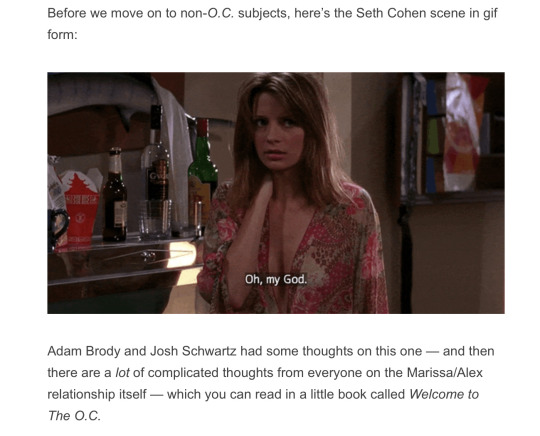
#the oc#welcome to the oc#adam brody#josh schwartz#marissa cooper#alex ryan#seth cohen#tusernoelle#intriguing!
17 notes
·
View notes
Text
Way before his glamorous starring role as Admiral James T. Kirk in Star Trek, Chris Pine missed a role because of his looks.
In the early 2000s, he was in the running for the role of Ryan Atwood on the teen drama The O.C. But casting director Patrick Rush passed because of a common teenage problem.
Rush was interviewed for Alin Sepinwall’s new book Welcome To The O.C.: The Oral History.
“I hate saying this, but it’s the truth: Chris Pine was at the age where he was experiencing really bad skin problems. And it was at that point where it looked insurmountable,” Rush said. “As a kid who grew up with horrible skin, it just broke my heart. But Chris Pine’s fine now. He’s all right.”
Ben McKenzie won the role, but Pine soldiered on. He appeared on shows like ER and CSI: Miami, then made his major film debut opposite Anne Hathaway in 2004’s The Princess Diaries 2: Royal Engagement.
14 notes
·
View notes
Text
thank youuuuu my beautiful eve @bright-and-burning for the tag 💕 mwah
star sign: triple gemini baby!
favorite holiday: 16 de septiembre for the food!
last meal: i had a mini strawberry swirl cheesecake and a vodka tonic for dinner... very nutritious, i know
current favorite musician: in case you haven't noticed from my main url paramore is the great love of my life. other than them, i've been listening to a lot of talking heads, i saw slaughter beach, dog last weekend, and i'm excited for willi carlisle's album coming out later this month!
last song listened to: hallelujah by paramore
last movie watched: rewatching Thoroughbreds (2017) as we speak. one of my absolute favorites! (let's be friends on letterboxd)
last tv show watched: i watched the finale of The Curse tonight! deeply weird, 10/10 would recommend
last book finished: Welcome to the O.C.: The Oral History by Alan Sepinwall (a christmas gift from @liamlawsonlesbian)
last book abandoned: The Garden of Eden by Earnest Hemingway (lol)
currently reading: just started a reread of Guns, Germs, and Steel by Jared Diamond
last thing researched for writing/art/hyperfixation: stigmata
favorite online fandom memory: the night paramore played all i wanted live for the first time and everyone i know and love collectively lost their minds
favorite old fandom you wish would drag you back in/have a resurgence: when i start TSN hyperfixating again it's over for you bitches
favorite thing you enjoy that never had an active or big fandom, but you wish it did: speaking of Thoroughbreds (2017)... it's such an underrated movie that didn't get a wide release and i mourn more people aren't obsessed with it
tempting project you don't have time for: i've been kicking around the idea of organizing a little valentines fic fest but i'm working on a zine that we're publishing around the same time so :(
no pressure tags if you want to share: @creabirds @breathofnyx @liamlawsonlesbian @formula1forfishsticks
8 notes
·
View notes
Text
New Sepinwall interview in the Hollywood Reporter
New Sepinwall interview in the Hollywood Reporter:
Mischa's story was not what he thought would it be. Bleh. (at 28:00)
Josh and Stephanie didn't want to talk about Johnny at all and rescheduled multiple interviews in order to avoid it (this is not directly Mischa related but I lol’d).
In terms of things he was not expecting, Mischa's exit was the biggest in the book. Mischa was really reluctant to talk about her exit at all 😦
He describes his conversation with Mischa as "delicate" and the one he spoke to the least and required the most negotiating to get. "If she doesn't want to unpack her trauma with a journalist, I completely get that and that's her right" because of that she was very weary and simply did not answer many of his questions (at 30:00).
He had to get a lot more from others about her than she was willing to give him.
They ask him how much did the show's exit impact her career - and he says well the gossip at the time could not have helped but Mischa's mom was annoyed that Ben and Adam were getting movie offers when she wasn't.
Maybe showbusiness had decided they didn't want her before she was even fired he seems to suggest. Why would he speculate like this after also calling his conversation with her delicate?
8 notes
·
View notes
Note
What are some of the characteristics of these white middle class men you speak of or how do you know someone is middle class? and why would prestige tv cater to only this dempgrpahic?
This is honestly a great question, and one that's surprisingly difficult to answer in a concise way. I've done my best, but in case you don't want to read, the TL;DR is: HBO (a cable frontrunner who defined the strategy for other competitors who emerged later) intentionally catered to men in its early (pre-prestige) days because they knew the networks were intentionally catering to women. This meant that when it shifted into prestige TV in the late 90s, the existing subscriber base was middle-class white men. It's first big flagship "prestige TV" drama, The Sopranos, appealed heavily to that demo and was wildly commercially successful. The Wire, while airing at the same time with equal critical acclaim, did not appeal to that demo and actively critiqued societal structures which benefitted that demo, and flopped both commercially and in the awards circuit. These two shows came very early in the "Prestige TV era", and execs took note of their respective receptions; consequently, much of the prestige TV which came after was selected with that middle-class white male demo in mind.
Longer explanation below the cut:
I should first clarify that when I say "Prestige TV" I'm using it more in the academic sense, of referring to a specific type of television which emerged in the "Prestige TV era", also called the "Second Golden Age" (around 1999-2020, although the precise end date depends on who you ask). A large range of shows fall into that category, but the common characteristics include heavy serialization (ie an emphasis on long-form storytelling, rather than standalone episodes), morally ambiguous characters, complex plots, diverse perspectives, and "R-rated" content. It's pretty widely agreed that this era was "kicked off" by The Sopranos; if I had to list other key Prestige TV/Second Golden Age shows, I'd probably default to the other eleven Alan Sepinwall analyzes in The Revolution Was Televised, his book about how television changed during the Prestige TV era (those eleven are: Oz, The Wire, Deadwood, The Shield, Lost, Buffy the Vampire Slayer, 24, Battlestar Galactica, Friday Night Lights, Mad Men, and Breaking Bad. Not all of those are commonly thought of as Prestige TV, because that label is now so removed from its source that it's only applied to a very narrow subsection of shows, but they are Prestige TV in the proper academic sense because of the impact they had on the era).
Not all of those shows were targeted at middle-class white men, and it wasn't my intention to suggest that every individual Prestige TV show is. But generally speaking, with only a few exceptions, the shows that defined the Prestige TV era and had the most commercial success while airing were the ones which appealed to that white, male, middle-class demo. And that's not a demo HBO picked up accidentally. It was explicitly built into their early strategies to go after that demographic, and so that was the demographic that had access to Prestige TV before people thought of it as Prestige TV, which means their opinions did a lot to influence how it developed.
HBO's primary strategy for survival in its early years, especially before other cable networks emerged, was differentiation. The problem they faced was there was lots of television that people could watch for free on network TV, and there wasn't the same distaste for advertising we have now which might have pushed people to pay for a subscription. Their solution was to try and target the people who a) had disposable income, and b) were dissatisfied with what was on the networks. Studio execs knew that the primary target market network execs had in mind when they were buying shows was middle-class white women, because that's the demo that their advertisers wanted to hit. Obviously, the definition of middle-class is contentious now, but I'm using it to mean people with disposable income, which is what made them attractive; white, because the middle class was disproportionately white, and also because network TV was trying to target a generic default 'American' audience, which to their minds was white; and women because advertisers believed women made most of the household purchasing decisions. HBO also needed people with disposable income, so it also targeted middle-class whites by default. However, the main place it decided to differentiate was by going after men, in an extremely intentional programming strategy developed by HBO CEO Michael Fuchs. Sheila Nevins, who was in charge of documentary programming, developed several documentary series, called, respectively, Real Sex, G-String Divas, Cathouse, and Sex Bytes, intentionally to try and cater to men - and it worked! Subscriber numbers increased in droves. And sure, we don't definitively know most of those subscribers were men. But... anecdotally, and in terms of the extremely limited market data we do have, the evidence for those subscribers and viewers being mostly men is quite strong.
White middle-class men weren't by any means the only group they targeted; another part of HBO's strategy was to create a wide variety of content catered to many different groups of people. But those white middle-class men became the most reliable paying subscribers, so HBO's content strategy leaned heavily on catering to their tastes to bring in funding they could use for "brand projects" - weightier, more artistic projects that improved HBO's brand image. When competitors like Showtime emerged, they developed their own spins on HBO's strategy; they targeted their markets in different ways, but ultimately everyone was trying to appeal to the groups who were unsatisfied with network TV, and everyone wanted the white middle-class male subscriber's dollar because it was considered the most "reliable". That demo essentially became to cable TV what advertisers were to network TV.
To trace cable TV's history from the 70s to The Sopranos would take a while and also involve spending more time talking about boxing and Mike Tyson than you would expect. HBO continued to stick to this strategy of differentiation and slowly achieved more market dominance. Ultimately, that brought HBO a combination of funding and creative respect that allowed them to gamble on The Sopranos, a show that several networks passed on before it was pitched to HBO, who ordered the pilot, only to have it perform extremely poorly in the test screening. So poorly that no sane executive would have ordered more episodes.
Except.
The head of HBO at the time, Chris Albrecht (considered by many to be the 'godfather of prestige tv'), heavily related to Tony Soprano, and he felt that his (very male) social networks also would. He's quoted as repeatedly saying, "The only difference between Tony Soprano and every guy I know is that he's the don of New Jersey." Which might sound like hyperbole, but.... In that history of HBO we skipped over there is also a long and unsettling history of misogyny and violence (including sexual violence) sanctioned and covered up by the network which, even by our desensitized modern standards, I actually found pretty shocking. It's bad, y'all. Chris Albrecht (and his fellow execs) didn't relate to Tony despite the violence of the show and his anger issues - they related to him because of it. The most famous incident concerning Albrecht specifically involves him strangling a female subordinate during a disagreement in her office, an allegation which led to HBO paying her a $400,000 settlement. And that's unfortunately not an outlier. (By the way, Albrecht objected to one of Sopranos most famous season 1 episodes, "College", because he felt Tony strangling another character to death would make him 'too unlikable', and viewers wouldn't be able to 'see his humour and charm').
Of course, The Sopranos turned out to be a massive hit, and deservedly so. But I think it's notable that its first season was only ordered because a small group of male executives steeped in violence, misogyny, and toxic masculinity personally related to Tony. And it's also worth noting that at the time, Tony Soprano was often compared to Mike Tyson, who many consider to be HBO's "first antihero". HBO was very involved in his career largely because the controversy around him brought in that middle-class male demo; Tony Soprano was considered to be a continuation of that strategy.
(To be clear, not all men who liked The Sopranos liked it for those reasons. But if we want to get in the weeds about it, HBO catered not just to men in general, but in a very particular way, to the subsection of men who did).
Another thing to note is that part of the success of The Sopranos was the way it catered to the anxieties of the now-shrinking middle class. When the series aired, the stock market was booming, but a spree of mega-mergers and consolidations resulted in record layoffs. CEO pay was skyrocketing while median family income was dropping, and the "middle class" that HBO had always catered to (bc of the disposable income) was disappearing. At its core, The Sopranos was very much about the anxiety which surrounds a way of life disappearing; consequently, the middle-class demo HBO had worked so hard to cultivate was immediately hooked. And yeah, a lot of them were no longer middle-class, strictly speaking. But HBO was still very much trying to cater to, for example, white-collar workers who recently fell out of that income bracket, rather than blue-collar workers or lower income brackets.
Let's also look at The Wire, a show essentially pitched as an audience bait-and-switch. Creator David Simon wanted it to look like a standard-issue broadcast police procedural, like pretty much every TV network had. But what would make it different is that, as the show developed, it would become increasingly subversive - instead of wondering "whether the bad guys would get caught", he wanted the audience to wonder "who the real bad guys are, and whether catching them means anything at all". In his pitch to HBO, he wrote: "You will not be stealing market share from the networks by only venturing into worlds where they can't; you will be stealing it by taking their worlds and transforming them with honesty and wit and a darker, cynical, and more piercing viewpoint than they would undertake."
While The Wire is textbook Prestige TV, it actually didn't hit that middle-class white male demo. David Simon wasn't concerned with hitting demos or relatability; he wanted to create a far-ranging critique of the police system, neo-liberalism, and capitalism. These were topics that simply didn't resonate with the demographic HBO had built up in its subscriber base, many of whom were quite happy with the police system, neo-liberalism, and capitalism, since they were benefitting pretty heavily from it. The only subscriber demo it did consistently hit was critics, academics, and journalists. And even then - despite its massive critical acclaim, The Wire was heavily snubbed in the awards circuit. The awards snubs are especially telling, given how much the critics claimed to love the show, calling it "Dickensian" - a lot of these people were the same ones voting in the Emmys, so what gives? A lot of people have spent a lot of time trying to figure it out, and what they keep coming back to time and time again is that the majority of the cast of The Wire was black. (It's also worth noting that the original plans for season 1 involved killing off the character of Kima Greggs, a black lesbian, until executive Carolyn Strauss pushed - hard - to reverse the decision, on the grounds that HBO's programming was already too white, male, and heterosexual. Greggs eventually went on to become a particular favourite of the show's extremely small fanbase, which I think is indicative of the kind of demographic the show picked up.) The response was so disappointing that it was nearly cancelled several times; in the first near-cancellation, Albrecht joked that he'd heard from "all 250 of the viewers".
These are just two shows, obviously. But they're two shows that came very early in the era, and so heavily influenced what came after. The Sopranos especially redefined what TV could be; it proved that morally complex, serialized stories with antihero protagonists had a market - and the limitations on network television meant that market could only be reached by cable networks like HBO, which had built up a specific sort of subscriber base. We have to make a distinction between what David Chase wanted to communicate with The Sopranos and why it succeeded the way that it did. Chase didn't set out to create a show that would resonate with white middle-class men, but he did, and it was wildly successful. David Simon's show, while equally critically acclaimed and airing in largely the same time period, did not resonate with white middle-class men, and it never achieved the sort of viewer ratings during its run that other shows of comparable quality did. Studio execs inside and outside of HBO saw that and took note.
Again, the decisions that go into the creation of TV shows are extremely complex, and to say "all Prestige TV is targeted at white middle-class men" is a huge oversimplification. There's a lot more to the history of HBO than just Sopranos and The Wire. But a reliance on that demo, and an active desire to cater to their interests, has heavily defined the kinds of shows which are considered to be Prestige TV, as well as the kinds of shows that cable TV studios are willing to put money into developing. If you want to really examine the context that the "Second Golden Age" is rooted in, you have to be willing to grapple with that history.
#asks#anon#there's a whole history which comes after this as well so. its complicated#I hope this is clear. happy to further clarify any point. I'm trying to condense a LOT of info w/o missing anything important#also belatedly realized you asked about middle class and I focussed on men. I hope it’s clear enough to just say middle class here means#people with disposable income#and#that middle class demo was picked up in the 60s and 70s when the middle class WAS a thing#the financial demo they hit now might not be considered middle class anymore#but it’s still that same demo of white-collar suburbia they cater to#rather then lower income or blue collar demos
22 notes
·
View notes
Text
2023 Favoritest Book Reads
Vineland - Pynchon, Thomas
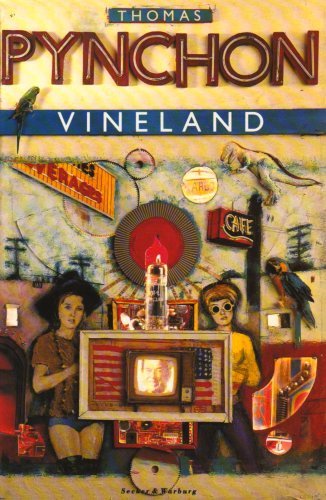
Prophet - Blaché, Sin & Helen Macdonald
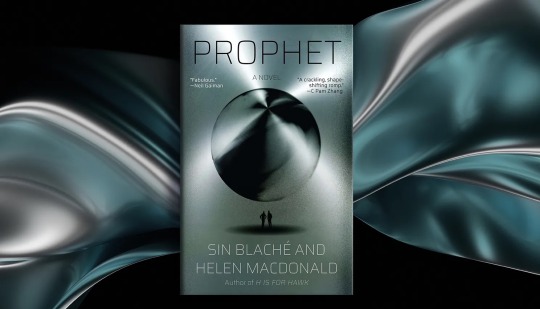
And the Ass Saw the Angel - Cave, Nick
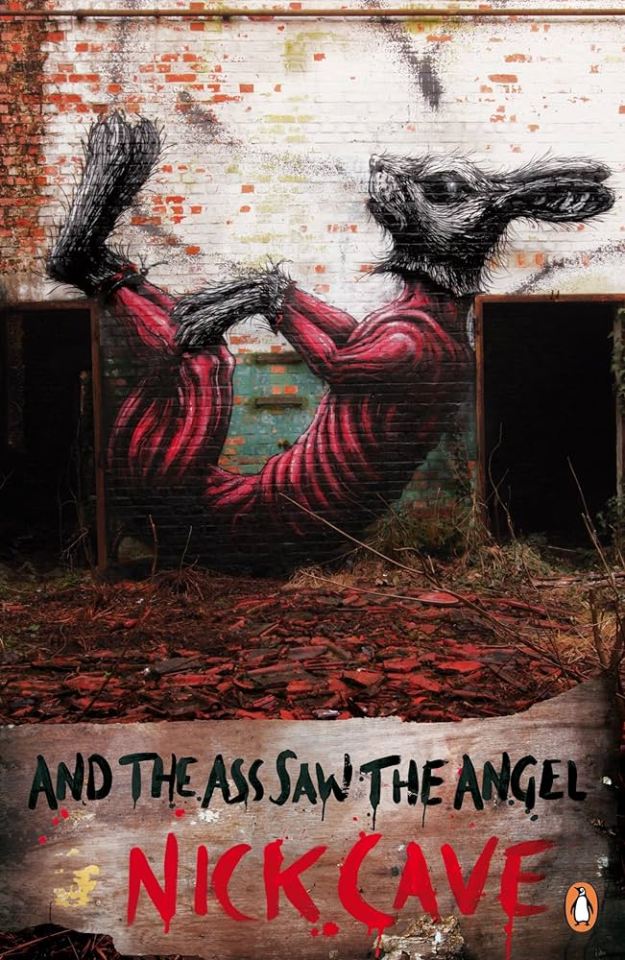
Lou Reed: The King of New York - Hermes, Will
The Color of Magic (Discworld, #1; Rincewind, #1) - Pratchett, Terry
Steal Like an Artist: 10 Things Nobody Told You About Being Creative - Kleon, Austin
Sonic Life: A Memoir - Moore, Thurston
The Fifth Season (The Broken Earth, #1) - Jemisin, N.K.
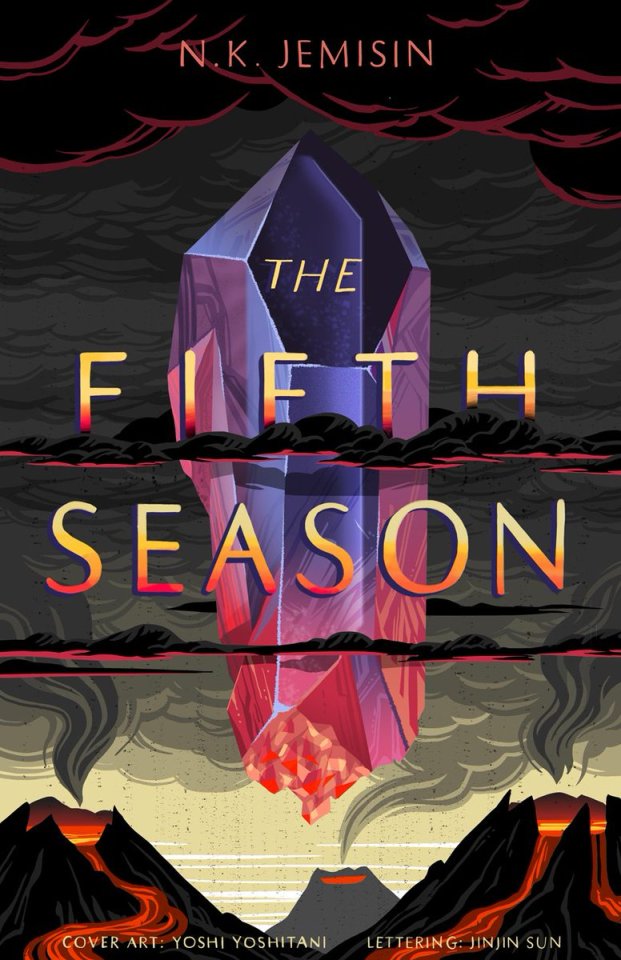
Fuzz: When Nature Breaks the Law - Roach, Mary
Everyone's a Aliebn When Ur a Aliebn Too - Sun, Jonny
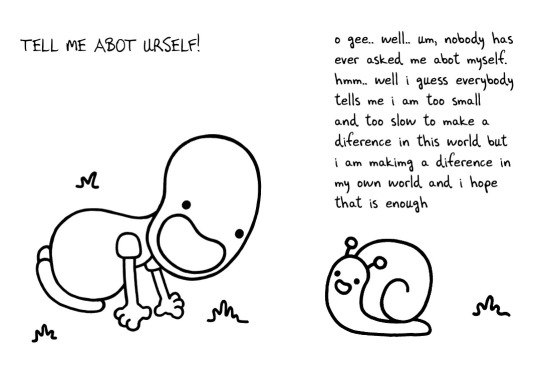
The Night Masquerade (Binti, #3) - Okorafor, Nnedi
Home (Binti, #2) - Okorafor, Nnedi
Binti: Sacred Fire (Binti, #1.5) - Okorafor, Nnedi
Binti (Binti, #1) - Okorafor, Nnedi
Black Paradox - Ito, Junji
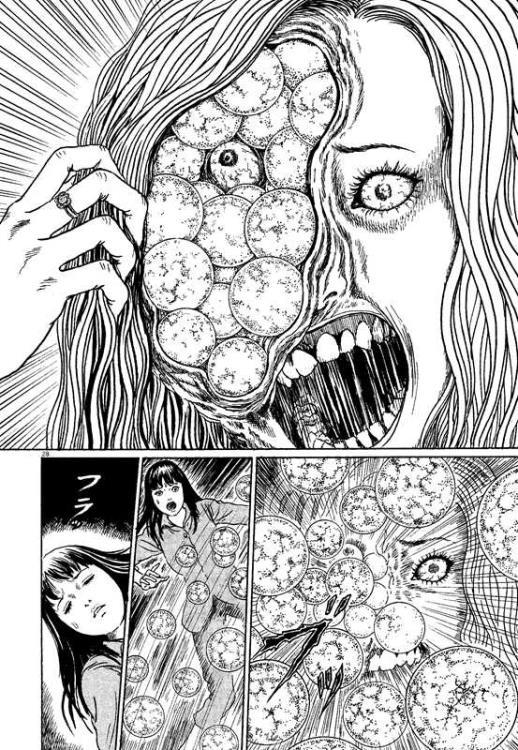
David Bowie's Low (33 1/3) - Wilcken, Hugo
Faith, Hope and Carnage - Cave, Nick
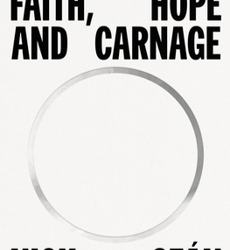
The Sirens of Titan - Vonnegut Jr., Kurt
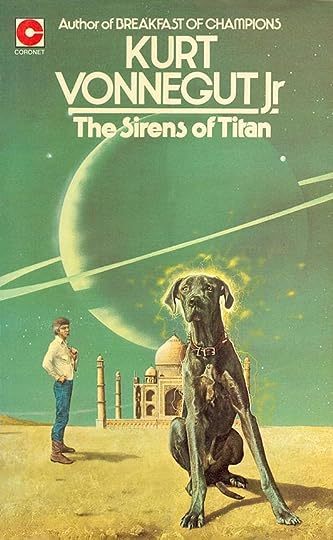
Zealot: The Life and Times of Jesus of Nazareth - Aslan, Reza
Smashed - Ito, Junji
Time Shelter - Gospodinov, Georgi
Brian Eno's Another Green World (33 1/3) - Dayal, Geeta
Armageddon in Retrospect - Vonnegut Jr., Kurt
Neverwhere (London Below, #1) - Gaiman, Neil
The Committed (The Sympathizer #2) - Nguyen, Viet Thanh
Into the Great Wide Open - Canty, Kevin
Mongrels - Jones, Stephen Graham
DisneyWar - Stewart, James B.
Bonk: The Curious Coupling of Science and Sex - Roach, Mary
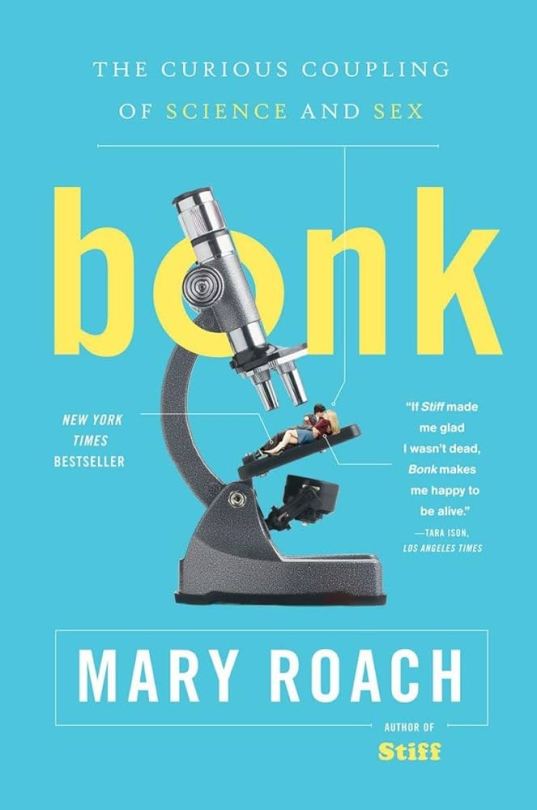
The Left Hand of Darkness - Le Guin, Ursula K.
My Bloody Valentine's Loveless (33 1/3) - McGonigal, Mike
Suttree - McCarthy, Cormac
Life's Work: A Memoir - Milch, David
The Invisible Life of Addie LaRue - Schwab, V.E.
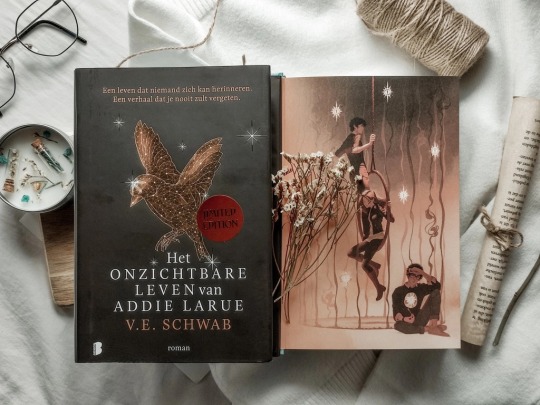
Against the Day - Pynchon, Thomas
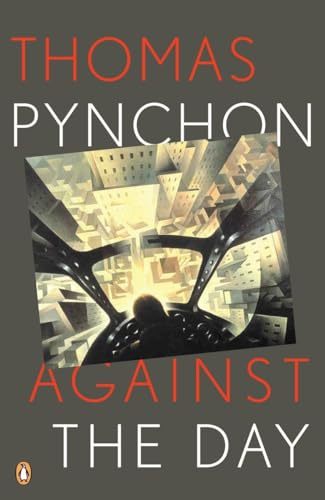
Burn It Down: Power, Complicity, and a Call for Change in Hollywood - Ryan, Maureen
Bruce Springsteen's Born in the USA (33 1/3) - Himes, Geoffrey
La Moustache - Carrère, Emmanuel
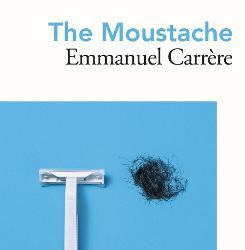
Janelle Monáe’s The ArchAndroid (33 1/3) - Favreau, Alyssa
Sooner or Later Everything Falls Into the Sea - Pinsker, Sarah
The Man Without a Shadow - Oates, Joyce Carol
The City & the City - Miéville, China
Mem - Morrow, Bethany C.
Sapiens: A Brief History of Humankind - Harari, Yuval Noah
Arcade Fire’s The Suburbs (33 1/3) - Eidelstein, Eric
Gutshot - Gray, Amelia
The Price of Time (Watch What You Wish For #1) - Tigner, Tim
The Revolution Was Televised: The Cops, Crooks, Slingers and Slayers Who Changed TV Drama Forever - Sepinwall, Alan
Just Kids - Smith, Patti
Sounds Like Titanic: A Memoir - Hindman, Jessica Chiccehitto
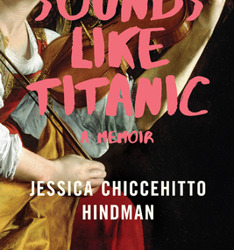
Flicker - Roszak, Theodore
Tinderbox: HBO's Ruthless Pursuit of New Frontiers - Miller, James Andrew
Flashback - Simmons, Dan
Flaming Lips' Zaireeka (33 1/3) - Richardson, Mark
The Sympathizer (The Sympathizer #1) - Nguyen, Viet Thanh
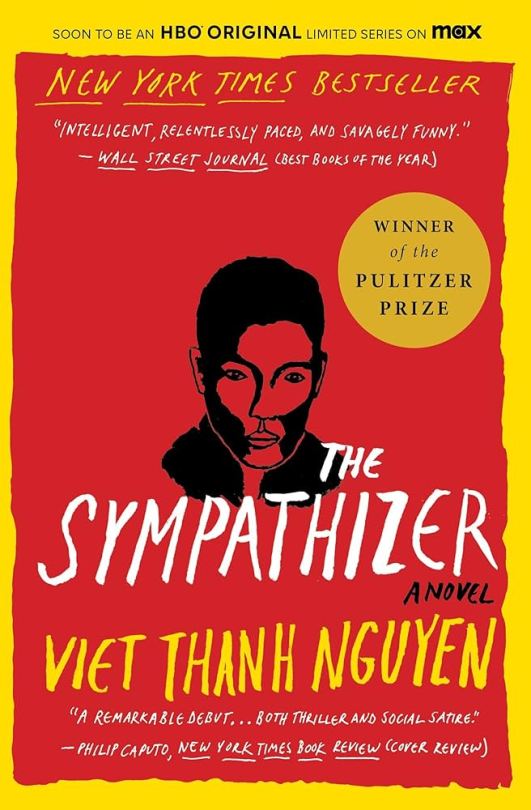
Pavement's Wowee Zowee (33 1/3) - Charles, Bryan
Neuromancer (Sprawl, #1) - Gibson, William
Invisible Cities - Calvino, Italo
Don't Fear the Reaper (The Indian Lake Trilogy, #2) - Jones, Stephen Graham

The Wes Anderson Collection - Seitz, Matt Zoller
Flow My Tears, the Policeman Said - Dick, Philip K.
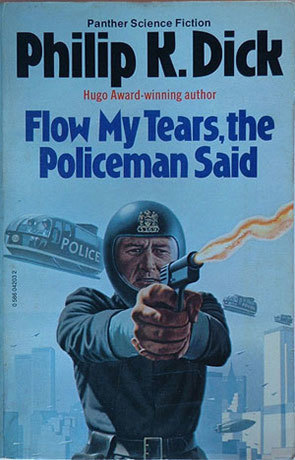
Kendrick Lamar's To Pimp a Butterfly (33 1/3) - Maner, Sequoia
The Nineties - Klosterman, Chuck
Tomorrow, and Tomorrow, and Tomorrow - Zevin, Gabrielle
Wanderlust: An Eccentric Explorer, an Epic Journey, a Lost Age - Mitenbuler, Reid
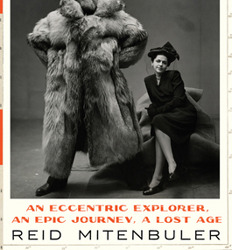
A Heart That Works - Delaney, Rob
Imago (Xenogenesis, #3) - Butler, Octavia E.
Cryptonomicon (Crypto, #1) - Stephenson, Neal
Blacktop Wasteland - Cosby, S.A.
Pearl Jam's Vs. (33 1/3) - Brownlee, Clint
Tracy Flick Can't Win - Perrotta, Tom
Devil House - Darnielle, John
Adulthood Rites (Xenogenesis, #2) - Butler, Octavia E.
Heat 2 - Mann, Michael & Meg Gardiner
Joy Division's Unknown Pleasures (33 1/3) - Ott, Chris
Dawn (Xenogenesis, #1) - Butler, Octavia E.
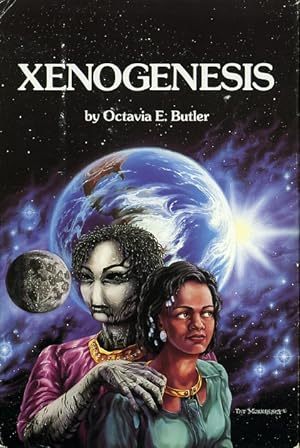
The Diamond Age: Or, a Young Lady's Illustrated Primer - Stephenson, Neal
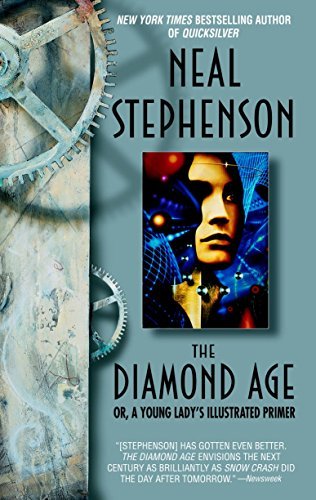
The Republic of Thieves (Gentleman Bastard, #3) - Lynch, Scott
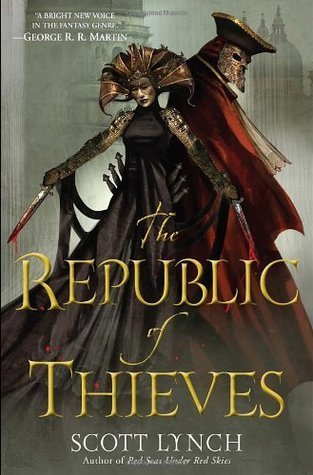
The Year of the Flood (MaddAddam, #2) - Atwood, Margaret
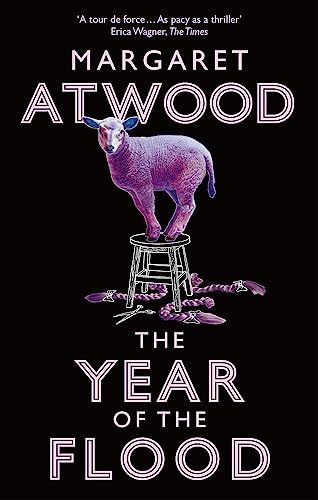
4 notes
·
View notes
Text
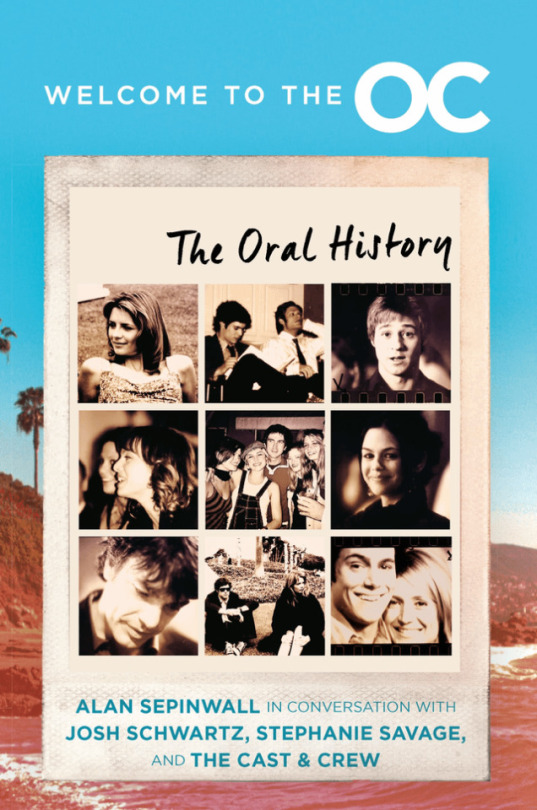
Big news for fans of The OC! This week it was an announced that an oral history of the show, titled Welcome to The O.C., will be released on November 28, 2023! Curated by television critic Alan Sepinwall, the book will feature interviews from the show creators and creative team, cast, bands featured on the show, and more.
15 notes
·
View notes
Text
excerpt from the forthcoming book about MB's exit. lots to unpack
17 notes
·
View notes
Text
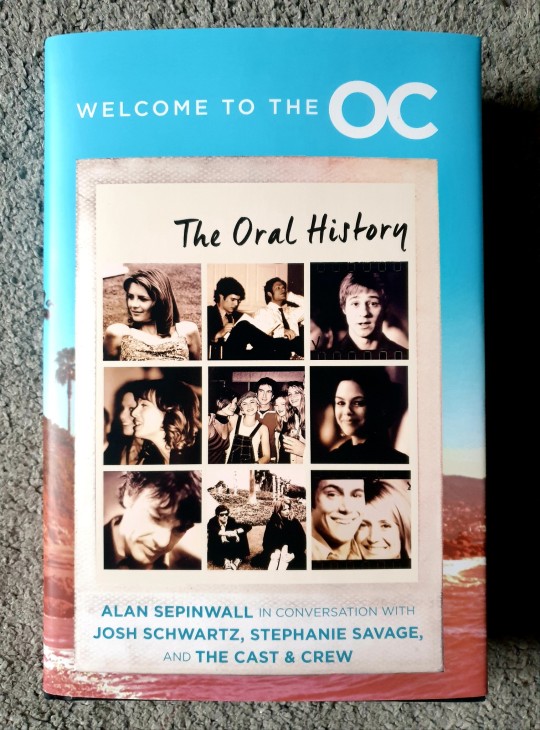
Currently Reading
Welcome to the O.C.
By Alan Sepinwall
My love for this show never died.
Season one is pure solid gold, it captured a time, a place and created a cultural imprint that still resonates today.
The O.C. debuted over 20 years ago and it's still being talked about today, whilst reaching a new audience via various streaming networks.
It helped bring indie rock such as Death Cab for Cutie, The Killers, Modest Mouse et al to the masses and it kinda made awkward alternative kids like me, cool.
This book is a great deep dive into the show with some fantastic interviews and insights, many of which were completely new to me (a self professed super fan).
Although, it was a shame certain people didn't contribute as there's no Oliver, Johnny or Volchok. It would have been nice to hear the 'villains' perspective or how they felt bearing the brunt of the fandom all those years ago. Yet despite their absence all the key voices were there and incredibly honest.
It's not going to 'spill the tea' on all the gossip some fans will want to hear, but for a 30 something year old like myself, this ticked all the boxes.
#The O.C.#The OC#Josh Schwartz#Stephanie Savage#Seth Cohen#Ryan Attwood#Alan Sepinwall#books#booklr#currently reading#oral history#TV#teen drama#Mischa Barton#Adam Brody#Ben McKenzie
4 notes
·
View notes
Text
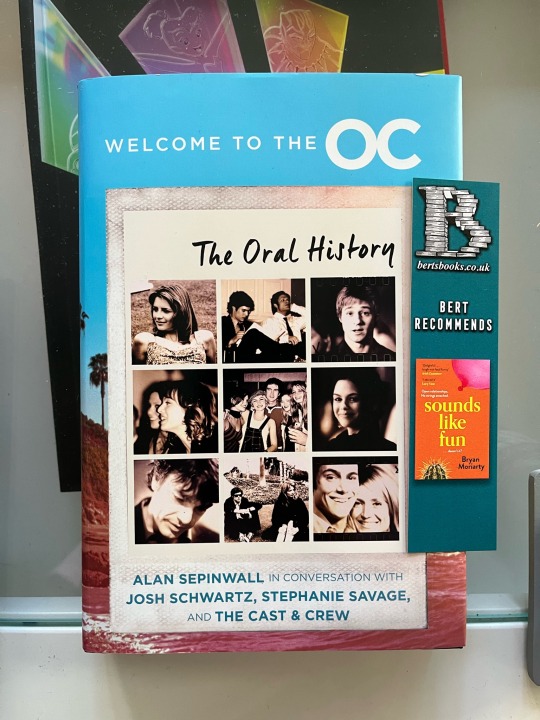
I have been reading Alan Sepinwall since I was teenager, which coincidentally is also when I was watching The OC, so when I heard about this book I had to get my hands on it. I have loved Alan’s writing for many years now and going back into the world of Ryan, Marissa, Seth and Summer will take me right back to the years of high school, message boards, Television Without Pity (if anyone knows what this is, we will be friends forever and I think Tumblr people may actually know) and dial up internet. Can’t wait to dig in!
2 notes
·
View notes
Photo
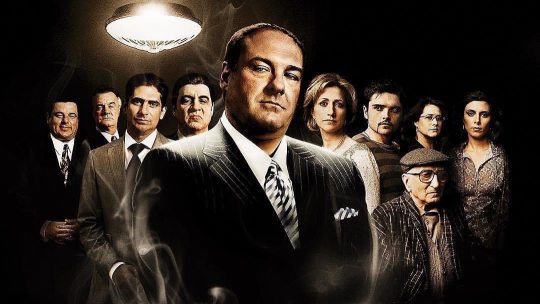
On the eve of the publication of their book 'The Sopranos Sessions', TV critics Alan Sepinwall and Matt Zoller Seitz meet at Holsten's in Bloomfield, NJ, the location of the controversial last scene of the 'Sopranos'. Their wide-ranging conversation covers television, movies, psychiatry and gangsterism. They also discuss their 20-year friendship and the experience of covering the HBO series for The Newark Star-Ledger, the newspaper that Tony Soprano picked up most mornings at the end of his driveway. The screening will be followed by a discussion between the two reporters and Kristian Fraga the director of the documentary. ‘My Dinner With Alan’ at the Alamo Drafthouse in Yonkers https://drafthouse.com/yonkers/show/my-dinner-with-alan-a-sopranos-session-qa-and-book-signing ‘My Dinner With Alan’ at the Garden State Film Festival https://tinyurl.com/y4yakqkx Thanks for all the hard work from Kristian Fraga, John Sikes, Marc Perez, Bianca Rosario Ramirez and Adrian Padarath. @sirkproductions @sikes_j @ipadarath @biancarosr @beerforallthebulls @sepinwall @mattzollerseitz @abramsbooks @holstensicecream https://www.instagram.com/p/CqOMvYsPptB/?igshid=NGJjMDIxMWI=
4 notes
·
View notes
Note
I also haven't done a comprehensive book post but I'd love to hear your thoughts! If anything, it's just made me have 10,000 more questions than I did before which was already A Lot. Also Justice 4 Mischa/Marissa always.
You sent this before we got Mischa Barton dropping major bombshells!! Now so much has changed!!
I said this briefly in earlier comments but my overall take on the book now is that, while it had lots of insights in other areas not related to Mischa Barton, it ultimately demonstrated the limits of the oral history approach. MB’s specific revelations also demonstrate why an oral history was probably not the best way to really get “behind the scenes” of what happened on this particular show. Like, in my experience oral histories are generally pretty fluffy and they kind of allow everyone to share memories and their recollections without much pushback…which is basically what happened in the book. If you interview as many people as Sepinwall did and absolutely everyone refuses to go on the record about two co-stars dating because they know just how fucked-up it is…that is a story that requires a *totally* different angle than a fluffy oral history, especially one that's such a direct collaboration with the showrunners. I’ve been thinking about the book recently published by Mo Ryan called Burn It Down: Power, Complicity, and a Call for Change in Hollywood. That’s the kind of approach you’d need to do her story justice.
At the same time, I do maintain that Sepinwall emphasized that what happened with MB’s exit was not her fault, in spite of his past (sketch) history with the show. He gave a lot of detail about network fuckery, Schwartz’s failures as a show-runner in S3, and he also showed that Brody and McKenzie were actually the ones being assholes on set, not MB, but that no one in charge cared because to Schwartz they were the two most important characters - ie, MB was considered expendable and the men were not.
As for Schwartz…I already thought he came off pretty terribly in the book but now, like, oh my god. I don’t know how anyone but ESPECIALLY women could work with him ever again. I think it's so gross to claim that you're going to be open and honest about everything that happened on your show when you know this HUGE SECRET. Like I *get* why nobody wanted to go on the record about this and of course it's fundamentally Ben McKenzie's or Mischa Barton's news to share, but then don't PRETEND that you're going to fully explain what happened twenty years later when you know it's not the full story. Jesus Christ.
What makes me so mad is that the only reason Schwartz was so comfortable “taking the fall” in the limited way he did for what happened with MB and the show’s decline in quality is because it hasn’t actually cost him anything, and sadly I don’t think MB’s interview is going to change that. Nobody important in Hollywood cares because it was so long ago and it was his first show and one actress’s mental health and career prospects are a small price to pay for letting a man do whatever he wants on a set. So he didn’t risk anything by going on the record about all this.
As for the non-MB parts of the book, of course I enjoyed reading everyone’s perspectives looking back, especially in the first year, and the little random fun stories that were sprinkled throughout. Chris Carmack came off as a pretty decent guy to me, and Adam Brody clearly has done a lot of reflection on that era of his life and how he acted at the time. I love Kelly Rowan and Peter Gallagher so much and I enjoyed their take on things (also intrigued by the comment that they weren't super tight on set?!) And I thought the book was a great overview of just how many factors and voices and interests went into making a single piece of television during the peak years of network tv. Like, so many different execs in charge of different things, all putting competing pressures on the show…it’s easy to see why television was so formulaic in that period. The O.C. in its earliest and best days really didn’t fit the mold for anything on TV, and as the book laid out why that was kind of the show's undoing in a way (in addition to Schwartz f*&king it up).
That was a lot and seems like enough to be getting on with for now, haha. Ultimately what I really want is a two volume exposé on the toxic culture of Hollywood in this early 00's era and how so many young women were chewed up and spat out by the system, with Mischa Barton's story as a prime example. She deserves justice!
#welcome to the oc: an oral history#mischa barton#the marissa discourse#book thoughts#finally getting around to the asks in my inbox...
8 notes
·
View notes
